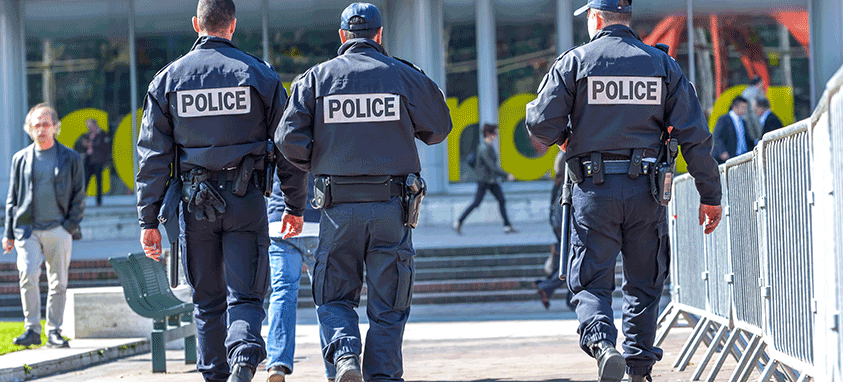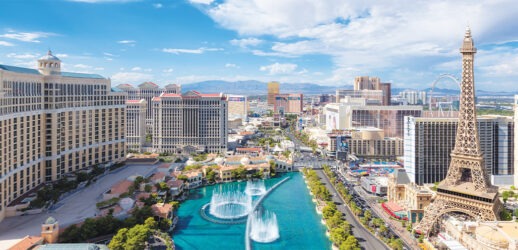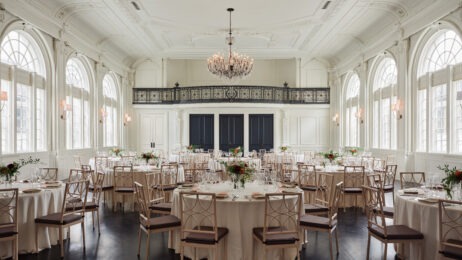News of the tragic shooting in Las Vegas that left more than 50 dead and hundreds wounded is doubly chilling for event planners. On top of the pain of hearing about senseless loss of life is a nagging question. “What would I have done if that had happened at one of my events?” More important, “What can I do to make sure it doesn’t happen at one of my events?”
The security of attendees is at the top of the list of responsibilities for every event planner and risk management is part of the job description. That requires asking some difficult questions and putting precautions in place that hopefully will never have to be used.
Luckily, suppliers have made it part of their job to raise the level of security at venues around the country. “With today’s increased threat of terrorism, we have brought the industry together to harden the target our venues and events create when we gather people together,” Brad Mayne, president and CEO of International Association of Venue Managers told Smart Meetings when we asked about the state of security in the industry in March. As a member of the Exhibitions and Meetings Safety and Security Initiative Council—which includes insurance brokers and Department of Homeland Security (DHS) representatives—he works to ensure that the program is successful and that the meetings and exhibition industry is safer.
“We have a need to protect our $280 billion economic impact through stronger safety and security programs,” Mayne said. The alliance includes International Association of Exhibitions and Events and Exhibition Services Contractors Association.
After Sunday’s attack on a country music festival, some have already suggested installing airport-style scanners at convention centers and hotels to keep people from bringing arsenals of firearms into guest rooms as the gunman at Mandalay Bay Resort and Casino reportedly did.
Vicki Johnson, principal at Vicki Johnson & Associates in Washington, D.C., hopes it doesn’t come to that. “Our responsibility as planners is to educate attendees about what to look for so they can report suspicious behavior,” she said the day after the attack. “This incident changes everything when it is someone you can’t even see.”
Extra Security Measures
Although venues have made it their business to be as secure as possible, sometimes hiring private guards is prudent. The National Gay and Lesbian Chamber of Commerce (NGLCC), for example, uses the services of OPS Security Group.
“As a diverse organization serving the LGBT community, we must always be prepared to respond to the unique needs of our constituents and to prevent disruption from those who may not agree with our mission,” said Rick Fowler, NGLCC’s vice president of meetings and education.
Whether independent security is brought in or not, coordinating with local police and fire officials, medical professionals and EMT providers is essential.
Fowler’s plan incorporates a seamless combination of visible, uniformed security professionals and nonuniformed security professionals that blend into the crowd. “Our emergency action plan comprehensively covers any type of disruptive event, should it be a protest, weather event, medical emergency or physical safety incident,” Fowler said.
Simple Safety Steps
Alan L. Kleinfeld a consultant and public safety officer, offered this checklist for putting together a safety plan for each event.
1. Require attendees to wear name or registration badges while at the meeting (and have them take them off when not at the meeting).
2. Make sure hotel staff has a list of attendees and knows what registration badges look like.
3. Train staff to know what to do or whom to contact when they see someone who doesn’t belong.
4. Use polygraph or psychological evaluations when hiring new staff and employees.
5. Hire off-duty police officers to roam venue space and create a police presence.
6. Provide active-shooter training for your staff (and confirm that hotel staff have been trained, too).
7. Create evacuation plans for your staff members in case they need to get attendees out in an emergency.
8. Make first-responders aware of your presence.
9. In your request for proposal (RFP), ask what other groups will be in-house during your meeting dates.
10. On your registration forms, ask for attendees’ emergency contact information.
11. Keep abreast of news and weather so that you can plan and prepare.




